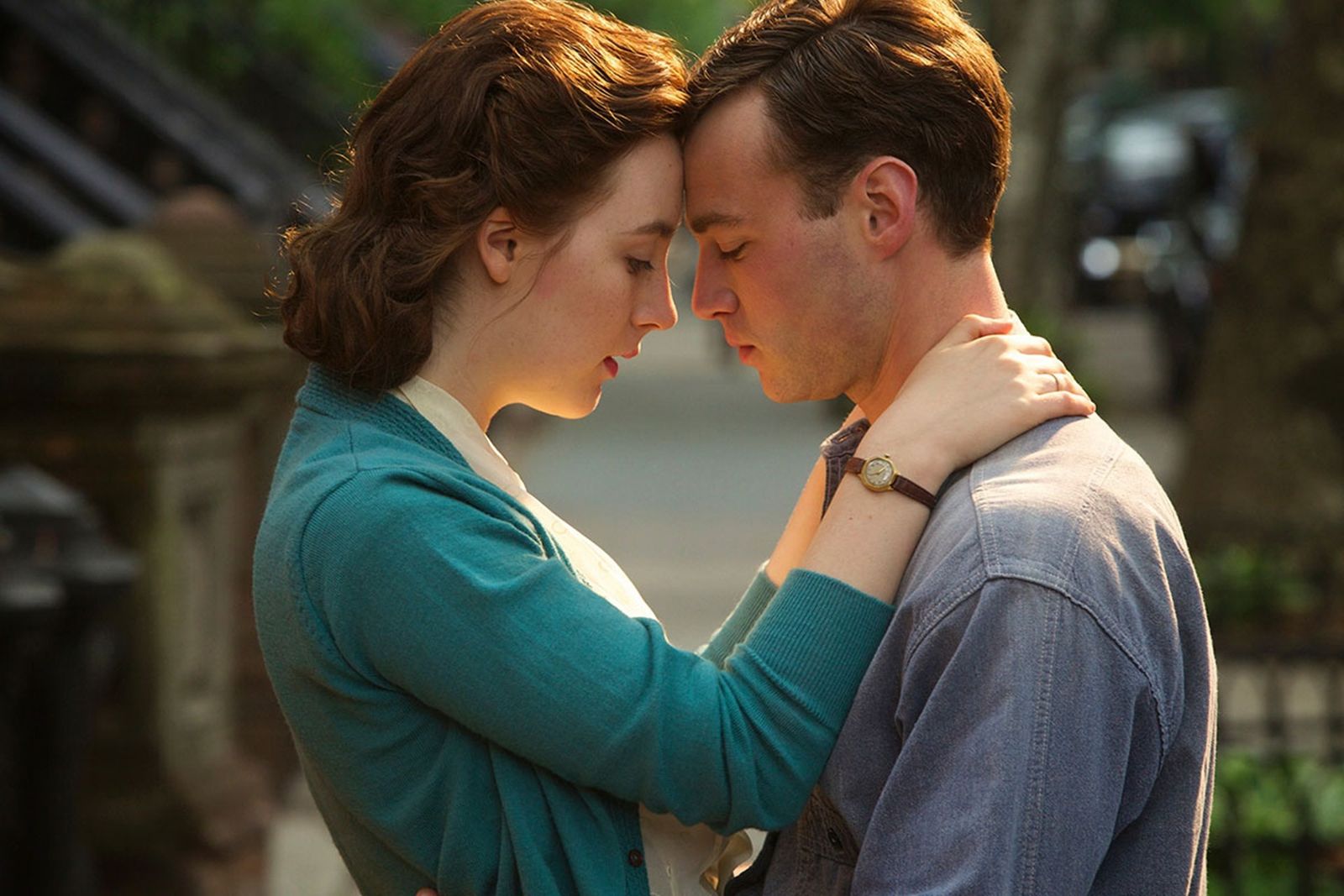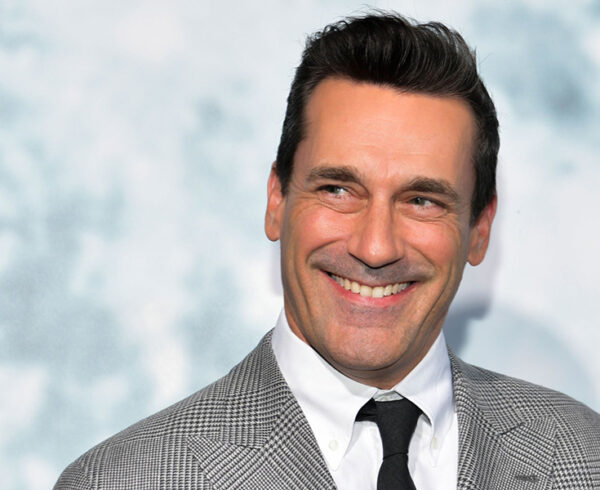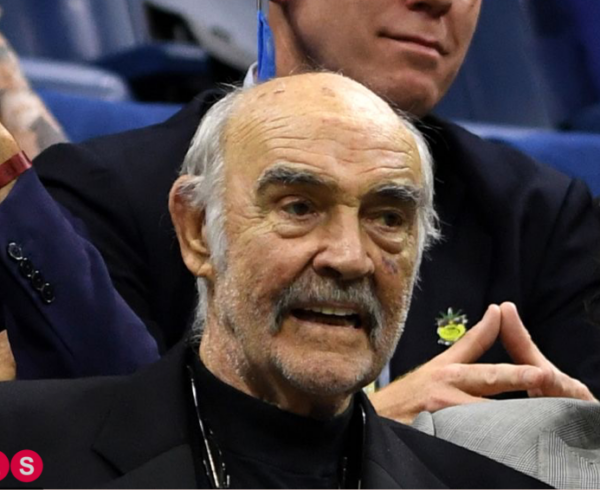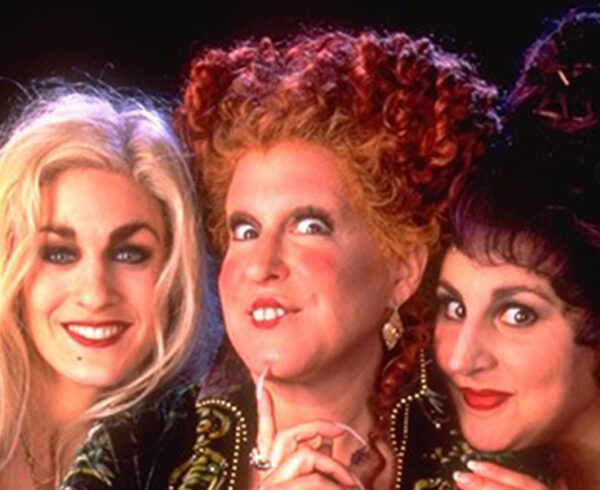The Joys of “Brooklyn”
“He’s decent.” That may be the most memorable line from the recent batch of Oscar-nominated films. It’s how Eilis (Saorise Ronan), the lead character in Brooklyn, describes her new American boyfriend, Tony (Emory Cohen), to her sister, Rose (Fiona Glascot), back home in Ireland.
Brooklyn takes place in two worlds, the close community of an Irish village and the eponymous New York borough in the early 1950s. These worlds share a common understanding of morality; a clear line between the “fellas” that young women like Eilis would describe as “decent” and others who wouldn’t quality.
Brooklyn might be described as a quiet film, as there are no scenes of violence and hardly a raised voice. Yet the picture carries with it a penetrating sense of risk at every turn.
Much of this risk is generated by Eilis’s situation as an immigrant. A priest from the old country has kindly provided her with a job and the ability to attend Night College, where she undertakes studies to qualify as an accountant. Like every immigrant she aspires to make a success in her new country while being desperately homesick. At the worst times her heartache is so great that she dissolves in tears, if in the most dignified and restrained way.
So, we naturally root and worry for Eilis, particularly as Soarise Ronan delivers an utterly transporting performance. (Brie Larson was great in Room, but I would have given the Oscar to Ronan.) Eilis’s heartfelt ambivalence gains in intensity when a death in the family has her return to Ireland, where the prospect of a full life with a job and a young man unexpectedly opens. Her new suitor, Jim Farrell (Domhnall Gleeson), is by her reckoning, “smart and civilized and charming” and “a gentleman.”
There’s something even deeper or more intensely felt in Brooklyn than an immigrant’s divided loyalties; something more universal as well that provides a fuller accounting for what’s at risk.
Eilis knows that the choice she makes in marrying will determine so much about the rest of her life. So it’s vital to choose a fella who is decent; who treats her with all the dignity that’s due another human being; who does not exploit her for his own selfish ends, whether sexual or otherwise.
She insists that her American boyfriend, Tony—who is immediately and utterly smitten with her—take his time in courting her. Their romance and the one that follows with Jim in Ireland reminds us both of the prudence and romantic power of 1950s courtship. We have the pleasure of witnessing how courtesy, respect, and discretion—really, all the virtues great and small—allow for each of the young peoples’ humanity to flourish. The morality by which they live directs their behavior, giving each the opportunity to think through their choices and make them considered ones.
Or almost.
Knowing that Eilis is returning to Ireland to visit her mother—and suspecting that her homeland may recall her permanently—Tony proposes that Eilis and he secretly elope to the registrar’s office before she goes. His rush frightens us, and for good reason, as it turns out, when Eilis considers staying in Ireland with Jim.
There’s something right about the rushed decision to marry, too, though—or, at least, it conveys an undeniable aspect of life. Decisions, especially important decisions like the choice of a mate, force upon us the naked experience of our freedom. Choices finally belong purely to the will.
“I want to do this.” So we take the plunge.
Which isn’t to say there isn’t a difference between wise choices and foolish ones, only that there’s no eliminating the unknown and the glorious if terrifying experience of choosing as best we can.
Tony begins speaking early on about “their children;” he hopes they won’t be Yankee fans, as he loves his Brooklyn bums, the Dodgers. Eilis cues him that it’s a little too early to be speaking about children, but not because there’s any doubt in her mind that children come with marriage. After Tony’s proposal they both speculate happily as to whether they will ever tell their children the story of their secret wedding.
Their common expectation that marriage naturally entails children belongs to that common morality that binds the two worlds. It weighs heavily among Eilis’s considerations as she seeks out someone to marry. For Eilis, this is only realistic.
Many now believe that we’ve replaced the code of behavior on display in Brooklyn with more flexible standards by virtue of reproductive technology. Youthful sexuality can now flourish divorced from all those weighty decisions–or so some would have it.
Why then do we feel that the world of Brooklyn is still more like our own than not? Or that we might prefer our world to be more like the film’s?
We still find ourselves at intense risk when choosing a mate or entering into a relationship. Our choices become part of our fate. That the prevailing moral code in Brooklyn has virtually vanished and been replaced by a menu of options hasn’t made–to judge by peoples’ levels of satisfaction in life–for much comfort.
I think we still want to find someone “decent.” I wonder if doing so hasn’t become harder.












